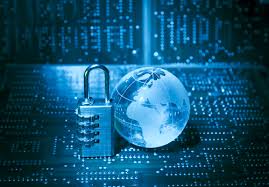The LAW FIRM OF DAYREL SEWELL, PLLC is pleased to announce that Mr. Sewell will be the moderator of the upcoming panel discussion, Advanced Technology and Global Security: Friend or Foe, held by The Johns Hopkins University NYC Law Affinity Group at the Princeton Club in New York City at 6:30 p.m. on Tuesday, April 26, 2016. For registration details and more, click on the event name above.
We have seen the emergence of technology into every facet of our daily lives. Social media and cell phones are indisputably ubiquitous. The result, in part, is the compilation of vast amounts of data on each individual. Access to this data gives unprecedented insight into our privacy by government, industry and the criminal element. How they choose to use this data is of concern to all.
People are increasingly aware of the dilemma between privacy and global security. According to the Wall Street Journal, FBI Director James Comey said that the FBI paid more than $1 million for a hacking tool that opened the iPhone of a terrorist gunman in San Bernardino, California.
The rapid growth of technology has created unexplored legal challenges, civil liabilities, social consequences, and potential for incursion of individual privacy. Couple these issues with the legitimate requirements of law enforcement and the intelligence community and you have a variety of questions around law, policy and practice. Join the panel with Mr. Sewell in a dynamic discussion covering all of the issues outlined and more!
- 599 E. 2nd St. Brooklyn, NY 11218
- 347-787-6824


Augustus
Research has shown that close to 91% of Americans own a mobile phone, laptop or another form of computing device capable of connecting to the Internet. Personal information such as identity, banking, contacts and of recent times, health data, are also stored on these devices. Knowingly or otherwise, device users also store their data on the cloud in some form or other. For instance, when an iPhone is backed up while charging, more often than not, that data is backed up in the cloud.
The law affords an individual a fundamental right to privacy. While the degree of this privacy varies according to circumstances, it nonetheless means a person should use due diligence in safeguarding their data and information. The average user has little knowledge on steps needed to safeguard their information online. Therefore, device makers and app developers have taken the initiative to encrypt their users’ data as a line of defense in protecting privacy.
Law enforcement (and some politicians) take the view that encryption is bad for “fighting crime” and “preventing terrorism.” They argue, governments must have “exceptional access” or “backdoor access” to all data, including encrypted data. They argue this is especially needed in the fight against terrorism. The argument put forward is not that data should not be encrypted; rather, they should have access to this encrypted data. Law enforcement believes governments should compel tech companies, through regulations, to build “exceptional access” or “backdoor” capabilities to their products.
A fallacy in this argument is that there is no evidence to suggest that granting “exceptional access” to law enforcement would prevent crime or terrorist attacks. On the contrary, recent attacks in Paris, Brussels and California showed that it wasn’t the encryption of data, but rather, missed signals from already available data, that allowed attackers to “slip” out of the radar of authorities. Ironically, some twenty years ago, when lobbying for the “clipper chip,” law enforcement used the same “sound bites” they are using today with regards to crime fighting and the need to maintain national security. The FBI even predicted in 1992 that certain types of wiretaps would become obsolete within three years. Despite the views held back then, the ability of law enforcement to engage in surveillance has not diminished. If anything, the ability of law enforcement to fight crime and engage in surveillance has increased with the advent and development of new technologies. Further, there is credible discourse to show that providing “exceptional access” or “backdoors” to law enforcement means cyber hackers, or those having ulterior motives, may also have access to this very same “exceptional or backdoor” access compromising an individual’s data.
Therefore, a salient question that should be tackled in this debate is: are we to compromise the safety of many, for the fear held by law enforcement that their “job” becomes harder. There is enough expert evidence to suggest making software/hardware less safe is likely the wrong way forward. Law enforcement should have the confidence to keep up with developments in technology. It is not a question of privacy vs. security, rather privacy AND security.